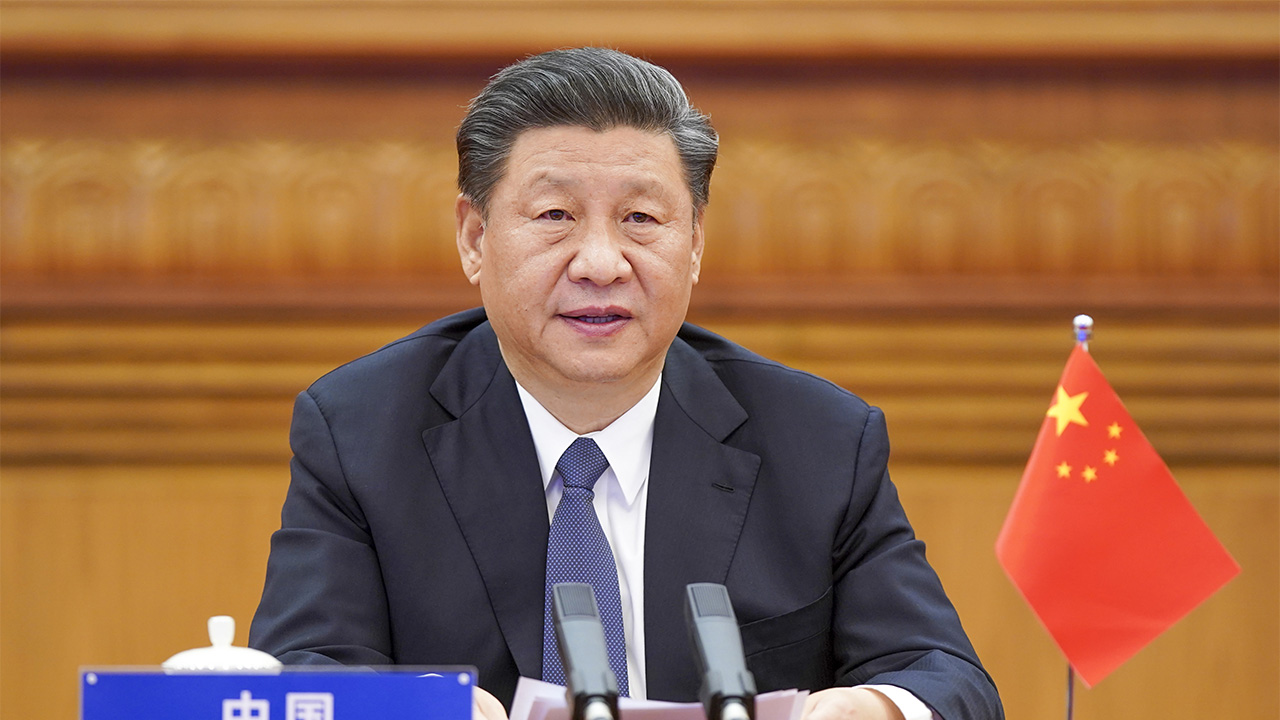How China is helping to fuel record-high inflation
China exacerbating inflation with steel, pork tariffs
Meat prices soar as inflation hits US consumers
Frank Ottomanelli, the owner of S. Ottomanelli & Sons Prime Meats in New York, says he has been forced to raise prices between 5 and 10 percent due to inflation.
Supply chain constraints, trillions in government spending and unusually high consumer demand have helped to push inflation in the U.S. to the highest level in 40 years – but geopolitical elements are also fueling rapidly rising prices.
A new analysis published by the Peterson Institute for International Economics, a Washington-based think tank, said China has exacerbated record-high inflation by imposing new tariffs and restrictions on two major commodities: fertilizer and pork. By doing so, Beijing has pushed prices higher across the world.
ONE OF BIDEN'S FAVORITE ECONOMISTS SEES A HIGH CHANCE OF RECESSION IN NEXT 2 YEARS
In a little-noticed move that began last July, China ordered its firms to stop selling fertilizer to other countries in order to preserve supplies at home. By October, although the move had already triggered a worldwide price spike in fertilizer, Beijing ordered additional limitations on exports.
That action sent prices spiraling higher and forced farmers to go without fertilizer, or pay far more for the product, long before Russia invaded Ukraine, another top fertilizer producer, on Feb. 24. The export controls are poised to last until at least the end of summer.

In a little-noticed move that began last July, China ordered its firms to stop selling fertilizer to other countries in order to preserve supplies at home. (AP Photo/Mark Schiefelbein / AP Newsroom)
"China's reflexive self-interest is too often to select the policy that sharply disrupts its trade flows, exacerbating price pressures in other countries, along with the headaches they produce," the analysts, Chad Bown and Yilin Wang, wrote.
Beijing has also imposed export restrictions on steel – something that it was once accused of generating at overcapacity, with low-priced exports forcing steelmakers out of business in the U.S., Europe and elsewhere. Now, China is seen as exacerbating a steel glut, triggering higher prices worldwide and adding more upwind pressures to inflation, according to PIIE.
That's because China announced at the end of 2020, after steel prices began to rise, that it would engineer a decline in domestic steel production in order to help meet "decarbonization goals," causing prices to accelerate further.
To reduce prices at home, China lifted a ban on imports of steel scrap in January 2021, and in May, restricted exports to keep more of its production local. The country also increase export taxes on five steel products and limited exports further by canceling rebates of value-added taxes of 13% on quantities of 146 or more. In August, Beijing imposed another round of restrictions, with new export taxes and more terminations of VAT rebates.

A hog walks in a holding pen on a farm near Elliott, Iowa, on Dec. 2, 2021. (AP Photo/Charlie Neibergall / AP Newsroom)
"This combination of Chinese trade policies may have helped tame domestic steel prices," the analysis said. "By March 2022, Chinese steel prices were 5% lower than they had been before the first round of export restrictions, in April 2021. But as in the case of fertilizer, these decreases came at the expense of the rest of the world, where prices outside of China remain higher."
On top of that, China has increased tariffs on pork: In 2018, China made up nearly half the world's production and consumption of pork, and 17% of world imports. An outbreak of swine fever forced the country to slash production; as a result, in 2019, China's pork prices had more than doubled relative to the previous year.
GET FOX BUSINESS ON THE GO BY CLICKING HERE
To help ease the pressure on Chinese consumers facing rising prices, Beijing slashed tariffs on pork in 2020 and opened up the country to more imports. But it has since shut down those imports – policies that affect the rest of the world. Although the tariff cut in 2020 helped Chinese consumers and foreign pork producers, consumers elsewhere have suffered from higher prices as a result.
"The trouble with China is that it continues to act like a small country," the Peterson analysts said. "Its policies often have the desired effect at home – say, reducing input costs to industry or one set of Chinese farmers or by increasing returns to another. But they can also be beggar-thy-neighbor, with China selecting the policy that solves a domestic problem by passing along its cost to people elsewhere."





















